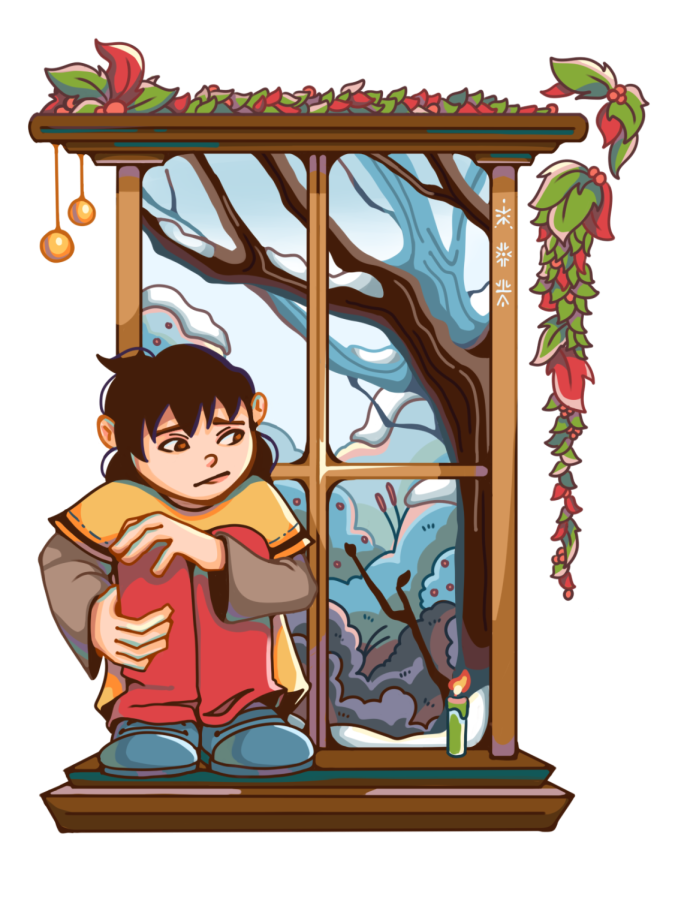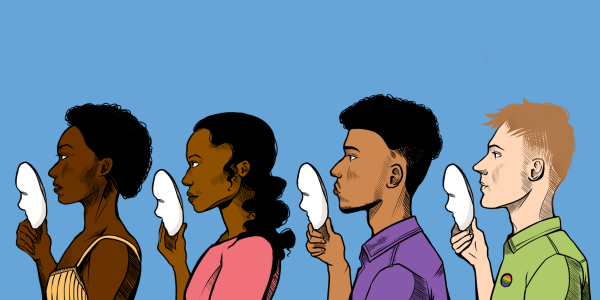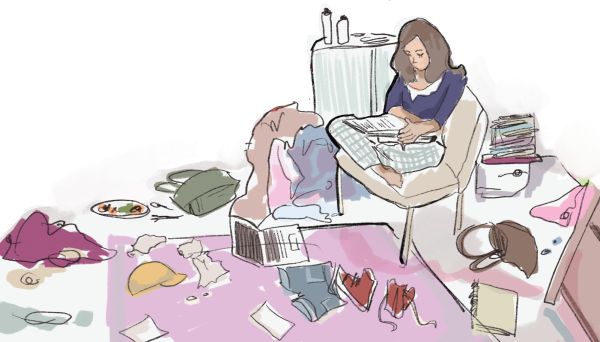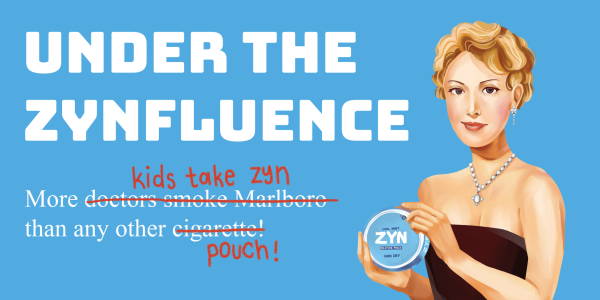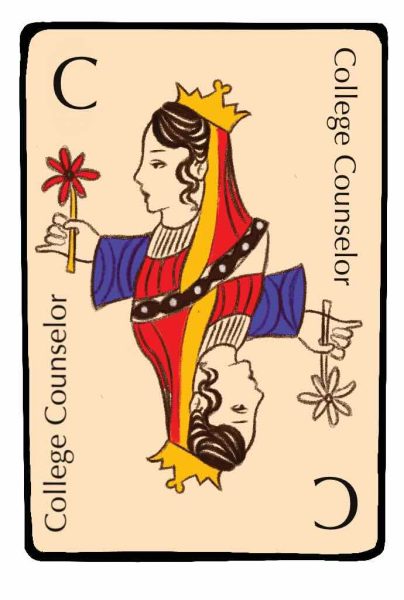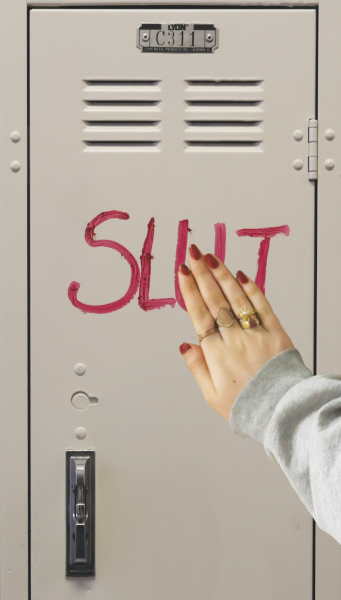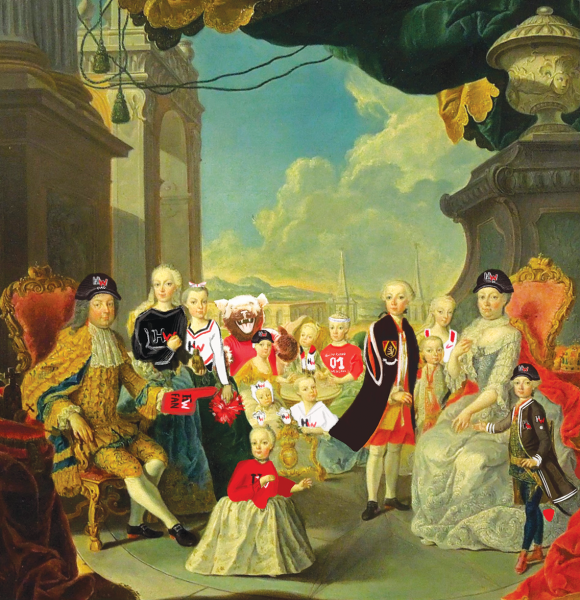Winter Blues
December 14, 2022
As Lila Daoudi ’24 arrived home from debate practice at 6:30 p.m., she zipped down her black puffer jacket and took off her beanie. Shivering from the cold rain, she changed into a hoodie and sweats and turned on the fire in her living room. Instead of doing her homework and studying as she normally would, Daoudi said all she wanted to do was turn off the lights and listen to music.
“The struggle with seasonal depression is so real,” Daoudi said. “During December, I feel less productive because it’s cold and dark. I want to stay in my bed more and I don’t want to get up to do work. Then I get sad and anxious that I’m not being productive and feel even more overwhelmed. I wouldn’t consider it actual depression for me, though, because it gradually goes away as we move into spring and summer. “
Seasonal depression involves the temporary increase in mental health struggles during the holiday season, spanning from November to January. According to a 2014 study by the National Alliance on Mental Illness, 64% of people with preexisting mental illnesses reported that the holidays exacerbate their conditions.
Similarly to Daoudi, Charlotte Whang ’25 said she has experienced symptoms of seasonal depression, which she said she thinks are caused by a combination of cold weather and her increased course load.
“I just experience lower moods,” Whang said. “I feel a lot more lethargic in the winter. School starts to feel repetitive and boring and everything just kind of feels like I’m going through the motions. I’m not motivated or particularly excited [by] my courses, but it sometimes gets to a point where I’d rather be doing anything other than school. It’s more temporary, because when I go on Winter Break, a lot of stress gets relieved.”
Even with the celebration of Christmas and time spent with her friends and family, Whang said it can still be hard for her to combat these negative feelings.
“I’m a little bit introverted,” Whang said. “So when I hang out with people, it’s more something that makes me tired, and drains my social battery rather than charging it. With all of the factors that pile on towards winter, like the work at the end of the semester, I even get really frustrated with just being around people like my friends.”
For the month of December, Prefect Council is organizing Winter Week, a series of themed dress-up days, in addition to decorating the Quad with holiday decorations.
Lauren Park ’25 said she appreciates the holiday season because it can serve as a helpful distraction from both school and seasonal anxiety.
“I love Christmas because it’s the same every year,” Park said. “It provides consistency for me and I always know what to expect. I like the comfort it provides, like looking at houses with holiday lights on my way home from school every day. The holidays don’t make me forget about the stress from school or anything, but I’d say they mitigate the stress.”
Daoudi said the holiday activities serve as an attempt on campus to make the general student population happier.
“I think Harvard-Westlake kids sometimes need something to look forward to just because this school can be a really stressful experience,” Daoudi said. “The holidays and winter break [are] one of those things. I’m Muslim, so Christmas is not really my holiday, but I really enjoy it. I think the celebration, family and gifts are fun. The school’s decorations and activities definitely try and cultivate a more cheerful atmosphere.”
Although she appreciates the time to rest, Daoudi said the two weeks off for Winter Break can sometimes feel like a negative disruption to her usual schedule.
“Over the break I am going to miss being regularly social and not seeing my friends,” Daoudi said. “I also just don’t really like to spend too much time with my family.”
Noelle Kim ’24 said although the school portrays Winter Break as something to look forward to, not all students necessarily share that view.
“The wintertime can feel very isolating to a lot of people,” Kim said. “During the break, people don’t get to see their friends every day as they do at school, and for some, that can only worsen the seasonal depression. Teachers have a good intention of trying to make us feel better about how winter break is getting closer and closer. I’ve seen that for some kids, however, that it does the complete opposite and it actually just makes them sadder.”
Kim said shifts in students’ social environments over the break can create anxiety for students who would not normally struggle with their mental health.
“I hear some students complain that they have to spend more time with their families,” Kim said. “When you go from being at school all day to having to spend every day for two weeks with your relatives, it can be a stressful experience.”
Kim said the school provides good resources for students who are coping with seasonal depression.
“Peer Support is a great way for students to help each other talk through their problems, especially during the winter months when some people are experiencing seasonal lows,” Kim said. “The school has also made it very clear in their emails that there are counselors who have their doors open for any students needing extra help.”
As opposed to solely seasonal reasons, Jacob Lutsky ’24 said increased cases of depression during the winter months are often due to school-related factors.
“So far I haven’t seen much depression or anything caused by the season as much as just [because of] the time of the year it is within school,” Lutsky said. “Stress exists especially among seniors because of college apps, but definitely among juniors and sophomores too with the large amounts of work people are getting. They have stress put on by themselves and others.”
Depression rates in teens ages 15 through 19 have increased 3.1% in the past five years, according to a study conducted by the National Institute of Health. The Peer Support program on campus provides a space for students to discuss their issues and form relationships with students from other grades. Head of the program and Interdisciplinary Studies and Independent Research Teacher Tina McGraw ’01 said even though depression rates have increased, seasonal affective disorder (SAD) itself is not a widespread issue at school from a medical standpoint.
“Rates of adolescent depression have increased overall in the United States over the last decade,” McGraw said. “Seasonal affective disorder is not something too common in Southern California as we don’t see huge changes in sunlight exposure like [people] might experience in northern latitudes. I’m sure that some students are impacted by the longer hours of darkness but it isn’t something I have typically seen in counseling here at school.”































